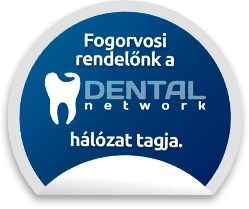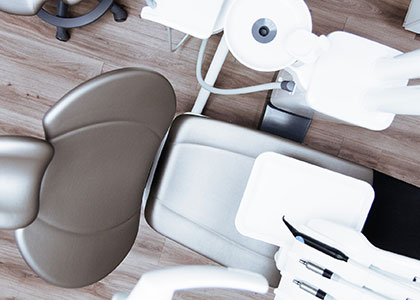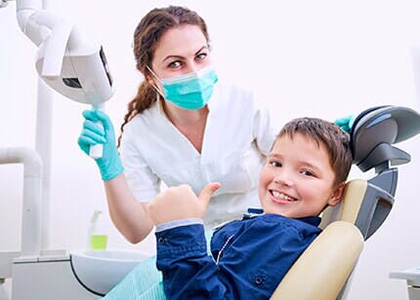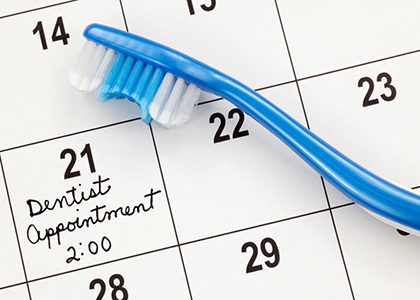Tooth Decay: Why It Happens and How to Prevent It
Tooth decay is one of the most common dental hygiene phenomena that can easily lead to the loss of healthy teeth if not properly treated. Prevention is key, so in addition to adhering to the fundamental principles of oral care, it's advisable to visit the dentist at least once a year to detect any potential abnormalities. Our article provides a comprehensive overview of the nature of tooth decay and offers practical suggestions to help prevent it.
What is Tooth Decay?
Tooth decay is a chronic condition affecting the integrity of teeth, usually first detectable in the grooves of molars as discolorations on the tooth surface.
Symptoms of Tooth Decay: What are the signs?
Tooth decay is an extremely uncomfortable disease, initially affecting the tooth enamel. Harmful bacteria that disrupt the pH balance of the mouth and promote significant plaque buildup on the tooth surface can easily lead to tooth decay. Because this stage does not involve pain or noticeable discomfort for the patient, symptoms of tooth decay are hard to detect at this point.
Typically, the more posterior or irregularly positioned a tooth is, the more susceptible it is to decay. Teeth that are difficult to access, abnormally positioned, and complicated to clean are at greatest risk, so it's worth taking the time to properly clean your teeth during brushing and to regularly undergo tartar removal and other dental treatments as needed.
If the tooth enamel is damaged, it's advisable to visit a dentist who can help stop the process with the right preparations and treatments. Without treatment, tooth decay can penetrate deeper into the tooth, affecting not just the surface but also the dentin and dental pulp. This can make the decay irreversible and may necessitate tooth extraction to prevent further complications.
If the patient experiences pain, sensitivity to certain hot and cold foods, or beverages, it's a sign that the problem is more advanced. Following this phase, infectious bacteria can easily lead to pulpitis, often necessitating the final removal of the tooth. Inflammation can quickly damage the gums, surrounding tissues, and alveolar bone, in severe cases leading to fever, swollen lymph nodes, painful swallowing, and lockjaw.
Treatment of Tooth Decay
For tooth decay—as with any other dental irregularity—it's crucial to visit a reliable dental clinic where a proper diagnosis can be made and symptoms can be alleviated and eliminated. What exactly does the treatment for tooth decay involve?
If there's no severe damage, the dentist will clean the affected enamel and recommend suitable oral hygiene products for prevention. For more advanced stages of tooth decay, the damaged dental tissues are removed, and the tooth is cleaned, then treatment continues with the best solution for replacing the missing dental tissues. Considering the anatomical composition of the patient's tooth, the dental hygienist may use aesthetic fillings, inlays, or place a crown on the tooth surface.
It's very important to emphasize the importance of prevention, which can help avoid the disease. Learning proper oral hygiene, acquiring the necessary tools for dental care, and regular dental examinations are essential for preventing tooth decay.
Causes of Tooth Decay
The causes of tooth decay are varied, typically characterized by plaque formation which can lead to an acidic environment in the mouth over time. This acidic environment damages the tooth enamel, potentially leading to the loss of hard tooth substance if not treated in time. Besides primary factors like improper oral hygiene and dietary habits, genetic factors also influence the development of tooth decay. The composition of saliva, the anatomical features of the teeth, the regular alignment of the teeth in the oral cavity, cultural oral hygiene habits, and age can also shape the severity of tooth decay over time.
What Can Be Done Against Tooth Decay?
The most important action against tooth decay is to establish a personal, easily maintainable, and comfortable oral hygiene routine. A quality toothbrush with not too hard bristles, flexible head, mouthwash, and dental floss are essential bathroom accessories. Brushing at least twice, preferably three times a day, can help prevent significant plaque formation on the enamel and the appearance of early signs of tooth decay. Regular dental check-ups, either biannually or annually for preventive purposes, are indispensable because it's hard to notice the decay of teeth in time. Overcoming any discomfort associated with visiting the dentist is necessary for maintaining healthy and aesthetically pleasing teeth, significantly enhancing self-esteem and overall well-being.
Frequently Asked Questions
What are the symptoms of mild tooth decay?
While it is true that early detection of dental and oral surgical diseases can make treatment faster, cheaper, and less painful, it's not easy to detect tooth decay in time. Symptoms of early or mild tooth decay include:
Tiny holes in the tooth enamel
Slightly discolored enamel
Increased sensitivity to temperature
How can childhood tooth decay be prevented?
The most effective way to prevent childhood tooth decay is to establish proper oral and dental care routines. It is crucial that children regularly and thoroughly brush their teeth using toothpaste. The use of dental floss or an interdental brush, which effectively removes food residue stuck between the teeth, is recommended.
How common is tooth decay in children?
Tooth decay is one of the most common dental problems among young and teenage children. Proper dental hygiene routines and frequent dental check-ups can drastically reduce the risk of tooth decay.
Can tooth decay be treated at home?
It is not possible to treat tooth decay at home. If you experience symptoms of tooth decay, be sure to visit your dentist.
Fehérvári Dental: Professional Dental Care in the Heart of Budapest Since our establishment in 1997, we strive to provide your family with the highest standard of comprehensive care, from toddlers to great-grandparents. Our specialists cover all areas of dentistry, enabling us to handle complex treatments requiring multiple dental specialists. Our team's professional and coordinated operation is evident throughout the entire care process, from clinical consultations to administrative tasks. Our practice boasts high standards in design and equipment. Our three-level clinic features three modern treatment rooms and an imaging area equipped with panoramic and intraoral X-rays, teleradiography, and CBCT. Our design includes a spacious elevator connecting the floors, accommodating those with mobility restrictions and families with strollers.
Book your appointment now!




















